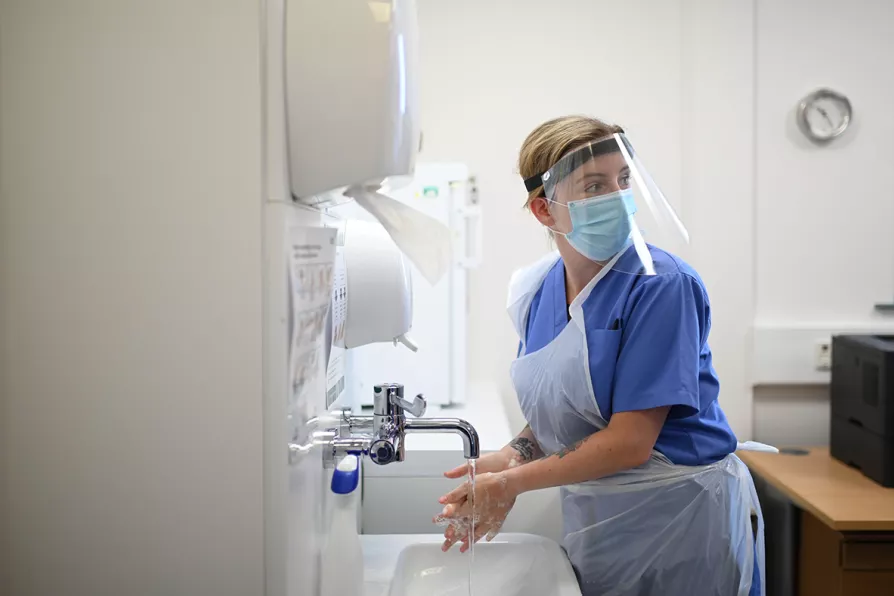As the RMT Health and Safety Conference takes place, the union is calling for urgent action on crisis of work-related stress, understaffing and the growing threat of workplace assaults. RMT leader EDDIE DEMPSEY explains

 Nurse Ashleigh Smith wearing personal protective equipment (PPE) washes her hands at work at the Littlefield practice at Freshney Green Primary Care Centre in Grimsby, Lincolnshire
Nurse Ashleigh Smith wearing personal protective equipment (PPE) washes her hands at work at the Littlefield practice at Freshney Green Primary Care Centre in Grimsby, Lincolnshire
WHEN talking about the danger of NHS privatisation, we should remember how much NHS privatisation has already taken place.
Both “New” Labour and Tory ministers had a simple but crude way of hiding NHS privatisation: they treated the NHS as a “brand” and stuck the big blue-and-white NHS logo on the front of private health companies.
So many operations people think are run by the publicly owned National Health Service are actually handed over to private firms.

Politicians who continue to welcome contracts with US companies without considering the risks and consequences of total dependency in the years to come are undermining the raison d’etre of the NHS, argues Dr JOHN PUNTIS

SOLOMON HUGHES details how the firm has quickly moved on to buttering-up Labour MPs after the fall of the Tories so it can continue to ‘win both ways’ collecting public and private cash by undermining the NHS

When privatisation is already so deeply embedded in the NHS, we can’t just blindly argue for ‘more funding’ to solve its problems, explain ESTHER GILES, NICO CSERGO, BRIAN GIBBONS and RATHI GUHADASAN












